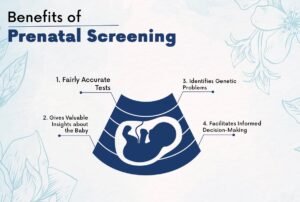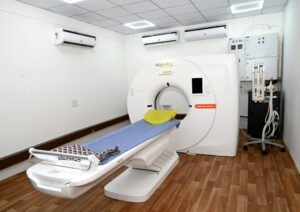Good Health: A priceless gift we give ourselves Keeping a tab on our health is a […]

Madurai breathes history and hustle. At dawn, the Meenakshi Temple bells echo through narrow lanes, while by noon, the streets of KK Nagar and Anna Nagar pulse with scooters, street vendors, and the scent of filter coffee. Yet, amid this timeless rhythm, a modern crisis quietly unfolds. In 2025, over 3.5 million residents live with rising health burdens. Diabetes grips one in five adults, fueled by sweet-laden diets and long desk hours. Heart disease stalks the middle-aged, driven by stress and spicy curries. Air pollution, with AQI often hovering between 80 and 120, scars lungs and triggers chronic coughs. Monsoons bring dengue and leptospirosis, flooding emergency rooms. In this city of devotion and endurance, one truth stands clear: early detection saves lives.
A single diagnostic scan can rewrite fate. A 1.5T MRI might reveal a silent brain aneurysm before it ruptures. A low-dose CT could spot lung nodules while they’re still treatable. An ultrasound might confirm a baby’s heartbeat—or detect an ectopic pregnancy in time. But here’s the reality: not every scan centre delivers clarity. With more than 60 facilities scattered from Sambakulam to Tallakulam, choices abound—and so do risks. An outdated 0.5T MRI produces grainy images that miss tiny tumors. A high-radiation CT scan raises long-term cancer risk. A delayed report turns a minor issue into an emergency. According to the Indian Council of Medical Research, 70% of all treatment decisions hinge on diagnostic accuracy. In Madurai, where hospital beds vanish during festival fevers, precision isn’t a preference—it’s survival.

The image shows a medical imaging room equipped with a Siemens Healthineers SOMATOM go.Now CT scanner. The scanner has a patient table with a blue covering, a yellow pillow, and a patterned cloth. The room has white walls, a wood-patterned floor, and ceiling lights. There are two air conditioning units mounted on the wall and various medical equipment and control panels are visible in the background.
At Agam Diagnostics, our NABL and CAP-accredited centre in Sambakulam has empowered over 15,000 patients with automated, error-free imaging. We’ve seen tears of relief when a 2-hour CT report caught a clot in time. We’ve held hands through claustrophobic MRIs with wide-bore machines and soothing music. This guide distills a decade of frontline experience into seven essential factors you must evaluate before booking your next scan in Madurai. Whether you’re a young mother in Thirumangalam, a textile worker in Arapalayam, or a senior in Tallakulam, these principles ensure you walk into a centre that sees you—not just your symptoms.
Picture this: a 52-year-old shopkeeper from Vilangudi feels chest tightness. He visits a nearby clinic. A low-cost CT scan is done on an old 16-slice machine. The report says “normal.” Three months later, he collapses. A repeat scan at a better centre reveals a blocked artery—too late for full recovery. This isn’t rare. It’s the cost of compromise.
Madurai’s diagnostic boom has flooded the market with options, but quality lags in many corners. Unaccredited labs use refurbished equipment with poor calibration. Technicians rush scans to meet quotas. Reports are handwritten, vague, or delayed by days. Hidden charges—“contrast fee,” “urgent report surcharge,” “CD cost”—turn a Rs. 3,000 scan into Rs. 6,000. Women hesitate when male technicians handle sensitive ultrasounds. Children cry in narrow, noisy MRI tunnels.
The best centres reverse this narrative. They invest in 1.5T wide-bore MRI machines that deliver crystal-clear brain and spine images while letting you breathe easy. They deploy 128-slice CT scanners with AI-driven dose reduction, cutting radiation by half—crucial for growing kids or cancer survivors needing repeat scans. They employ MD radiologists with 15+ years of experience, not fresh interns. They send reports via WhatsApp in 2–4 hours, not a week later by post. They bundle scans with blood tests for full-body insights at 30% less. They sanitize rooms after every patient, offer female technicians, and play Tamil melodies during scans to calm nerves.
In a city where traffic jams delay ambulances and monsoon floods clog roads, time is tissue. The right scan centre isn’t a service—it’s your silent guardian.
Imagine boarding a flight without knowing if the pilot is certified. Would you? Then why trust your health to an unaccredited scan centre?
Accreditation is the bedrock of quality. NABL (National Accreditation Board for Testing and Calibration Laboratories) certifies imaging accuracy through rigorous equipment checks, staff training, and result validation. NABH (National Accreditation Board for Hospitals and Healthcare Providers) ensures patient safety in hospital-based units. CAP (College of American Pathologists) adds global benchmarks. In Madurai, only about one in three scan centres holds NABL or NABH—many operate on “trust us” promises.
Before booking, visit the centre’s website or reception. Look for the latest certificate—valid for 2–3 years, not expired. Cross-check on nabl-india.org or nabh.co. Ask: “When was your last audit?” A confident “last month” beats a vague “soon.” Avoid centres that say “we’re applying” or show faded 2018 certificates.
Agam Diagnostics proudly displays NABL, CAP, and ICMR approvals. We undergo audits every six months, recalibrating machines to 0.1mm precision. Our reports are accepted by Apollo, CMC Vellore, and international hospitals—no second scans needed.
A scan is only as good as the machine behind it. Think of technology as the eyes of medicine—sharp, modern eyes see what blurry ones miss.
In 2025, anything less than a 1.5T MRI is outdated for brain, spine, or joint imaging. Older 0.3T or 0.5T machines produce noisy, low-contrast images—doctors squint, patients suffer repeat scans. A wide-bore MRI (70cm tunnel) prevents panic in claustrophobic patients, who make up 1 in 10. For CT scans, insist on 64-slice or higher with low-dose technology. A 16-slice CT struggles with 3D heart reconstruction; a 128-slice machine maps coronary arteries in seconds while slashing radiation.
Ultrasound? Demand 4D Doppler—it shows blood flow in real time, catching fetal distress or deep vein clots instantly. Digital X-ray (DR system) replaces old film-based units, giving instant, high-definition bone images.
Before booking, ask: “What brand and strength is your MRI? When was it last serviced?” Top centres answer with pride: “Siemens 1.5T, serviced quarterly.” Beware vague replies like “good machine” or “imported.”
Agam Diagnostics uses a Siemens 1.5T wide-bore MRI with ambient lighting and Tamil music playback. Our 128-slice CT employs AI to auto-adjust radiation—50% less than standard. Every machine is calibrated weekly. We don’t just scan—we see.
A stroke patient loses 1.9 million brain cells per minute. A dengue fever case needs CT results before platelets crash. Waiting 48 hours for a report isn’t inefficiency—it’s danger.
In emergencies, top centres deliver CT reports in under 60 minutes. For routine scans like MRI brain or ultrasound abdomen, expect 2–6 hours, not 2 days. Digital delivery via secure app or WhatsApp beats paper reports lost in traffic.
Ask: “When will I get my report? Can I track it online?” The best centres say: “2–4 hours, sent to your phone with doctor notes.” Avoid places that say “come tomorrow” or “call after 5 PM.”
Agam Diagnostics pioneered 2-hour MRI/CT reporting in Madurai. Our AI flags urgent findings in 30 minutes; MD radiologists review and sign off. Reports land in your inbox with annotated images—clear even for non-doctors.
A scanner doesn’t diagnose. A radiologist does. The best machine in untrained hands is like a Ferrari with a learner driver.
Insist on reports signed by MD or DNB radiologists with at least 10–15 years of experience. Sub-specializations matter: a neuroradiologist for brain scans, a cardiac imager for heart CTs, an oncology radiologist for tumor staging. Avoid centres where reports are stamped by “technician” or “junior doctor.”
Ask: “Who will read my scan? Can I speak to them?” Top centres offer free tele-consultation with the reporting doctor.
Agam’s team includes five senior MD radiologists, each with 15–25 years in their field. Our neuroradiologist, Dr. Meera, has published on early stroke detection. AI assists, but human judgment rules—no critical finding is ever missed.
Every CT scan uses ionizing radiation. One abdominal CT equals 500 chest X-rays. Repeated exposure raises cancer risk by 0.05% per scan—small, but it adds up for children, pregnant women, or cancer survivors.
Demand low-dose protocols using iterative reconstruction—AI that rebuilds images with less radiation. Child-specific settings cut dose by 70%. Avoid centres still using old “high-dose” modes.
Ask: “What’s your radiation dose for a chest CT? Do you follow ALARA?” (ALARA = As Low As Reasonably Achievable)
Agam Diagnostics reduces CT radiation by 50% using AI dose modulation. Our pediatric protocols are ICMR-approved. Pregnant? We default to ultrasound or MRI—zero radiation.
10% of patients avoid MRI due to claustrophobia. Women hesitate with male technicians. Dirty rooms spread infections. Long queues waste half a day.
The best centres prioritize humanity. Wide-bore MRIs (70cm+) feel open, not coffin-like. Female technicians handle breast, pelvic, and prenatal scans. Rooms are sanitized after every patient. Online booking eliminates waiting. Soothing music, air-conditioning, and privacy curtains turn anxiety into calm.
Ask: “Do you have female staff for women? Is the MRI wide-bore?”
Agam Diagnostics offers:
A “Rs. 3,500 MRI” becomes Rs. 6,000 with “contrast,” “report,” and “CD” fees. Insurance claims get rejected for lack of accreditation.
Demand all-inclusive pricing—scan, contrast, radiologist fee, digital report. Top centres tie up with 20+ insurance providers and TPAs. Bundles with blood tests save 30%.
Ask: “Is this price final? Any hidden charges?”
2025 Madurai Pricing (Honest Range):
Agam Diagnostics guarantees no hidden fees. We accept all major insurances and offer 30% off wellness bundles.
Agam Diagnostics leads with AI, mobile vans, and eco-friendly ops.
“I feared MRI. Agam’s wide tunnel and music made it calm. Report in 2 hours saved my surgery.” — Lakshmi, 58, Tallakulam
“My son needed CT. Agam’s low-dose scan and pediatric care gave peace. Results in 1 hour.” — Ramesh, KK Nagar
You now hold the 7-factor gold standard for choosing a scan centre in Madurai. Don’t settle.
Agam Diagnostics delivers:
Book Online Now Call 24/7:
Location: Plot 17-R-1, 120 Feet Road, Sambakulam, Madurai – 625007
In Madurai, health isn’t luck—it’s choice. Choose Agam.
Agam Diagnostics
Ground Floor, Plot No.17-R-1,
120, feet Road,
Vivekananda Nagar, Sambakulam,
Madurai - 625 007,
Tamil Nadu. India
Agam Diagnostics
Opp. To Gover.
Super Specialty Hospital,,
Tirunelveli - 627011,
Tamil Nadu, India
Agam Diagnostics
4A, 3, 10th Cross St,
Thillai Nagar East,
Thillai Nagar,
Tiruchirappalli - 620018
Tamil Nadu, India
Agam Diagnostics
#21, Dhali Road,
Udumalpet-642126.
Tirupur District.
Tamil Nadu, India